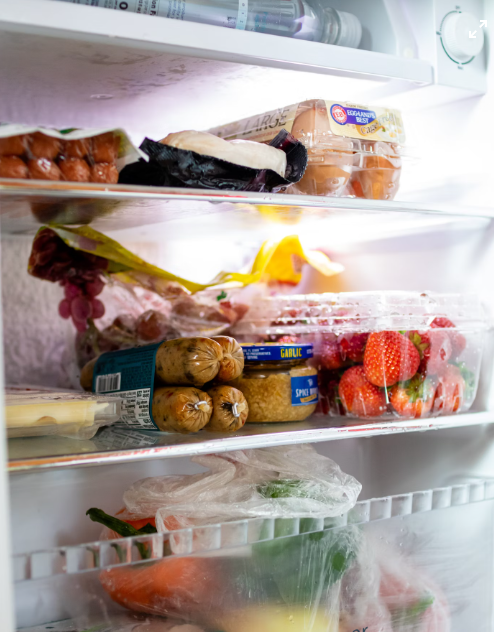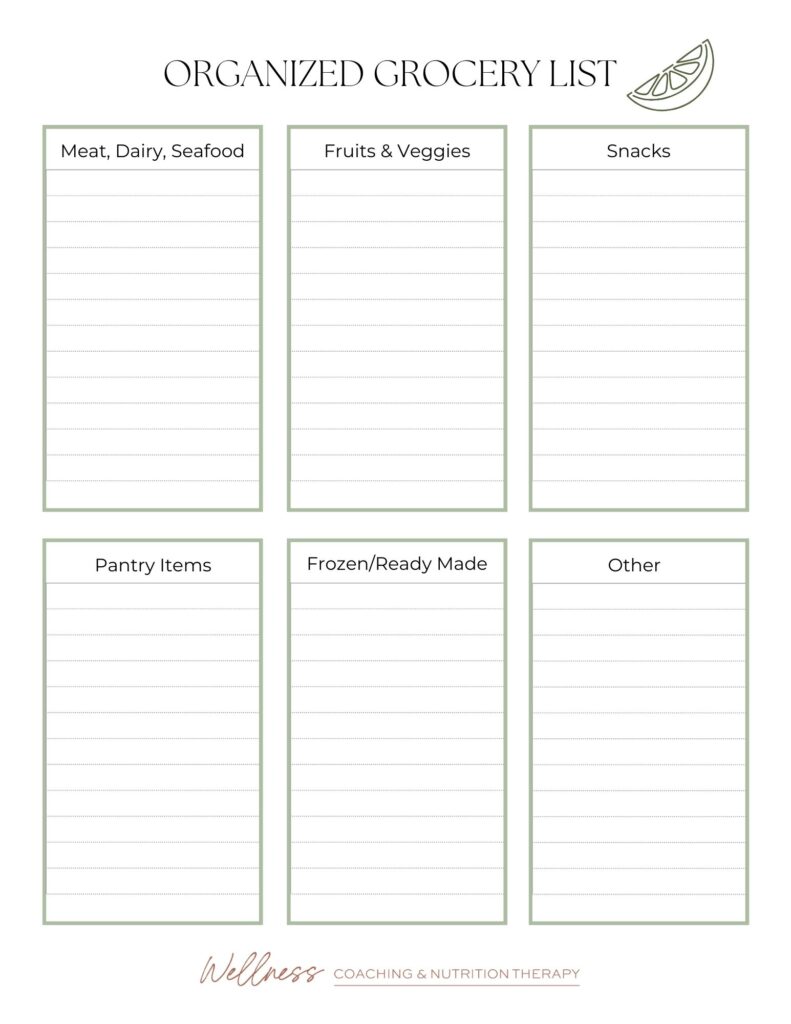5 Tips to Make Meal Planning a Little Easier
share to:

Meal planning can feel like a daunting task, especially with the hustle and bustle of daily life. However, with a few simple strategies in place, it can become a seamless part of your routine, saving both time and money while supporting your overall health. By taking a proactive approach to meal planning, you can reduce food waste, alleviate stress, and ensure that nutritious and delicious meals are always within reach. Here are five tips to make meal planning easier and more efficient.
1.Check your Fridge, Freezer & Pantry!
Before you go to the grocery store or write down meal ideas, do a quick check in your kitchen for what food items you already have. Ex. If you have ground turkey that needs to be used, maybe Spaghetti + Meatballs is one meal you can prep for the week! This can help you to plan meals using food you already have, which means less to buy at the store, and less food waste!

2. The Rule of 4!
Planning for the entire week can be overwhelming! Start by planning out 4 days at a time. 2 home-cooked meals, 1 left-over day, and 1 out to eat day! Breaking up the week into smaller chunks can be less overwhelming. This can be used for planning any meal of the day! Ex. Monday you cook dinner, and save the leftovers for Dinner Tuesday. Wednesday you go out to eat, and Thursday Cook dinner again (bonus if you have leftovers for Friday!)
3. Set a Weekly Schedule!
Routine is helpful when meal planning, but it’s also important to practice diversity and variety in meals! Instead of planning the same thing for dinner every Monday, maybe use a theme or cooking method. Ex. Tex-Mex Tuesday (Can plan fajitas, burritos, tacos, Loaded Nachos etc.) Or choose a cooking Method! Ex. Mondays are oven-baked meals, Wednesdays are Insta Pot Meals, and Saturdays are for grilling!
4. Plan For Balance!
Meals should be a balance of all the food groups! When planning your meals, keep in mind your individual meal plans, and plan for a balance of meat and dairy, fruits and vegetables, grains, and fun foods like dessert! When writing your grocery list, make a category for each food group to help plan your balanced meals and help organize your food list for the grocery store! And, don’t forget to plan for balanced snacks!

5. Have a Plan B!
Weeks can get busy, or unexpected things can happen during the day. That is a normal part of life! Having a plan B in case you can’t follow the plan you made helps with the flexibility of meal plans to adjust throughout the week. For example, keep some easy frozen meals in the freezer, and have stable pantry/fridge items for quick meals: Ex. Eggs+frozen veggies for an omelet or keep pantry items like pasta, rice, canned beans, and oatmeal in case you need to put together quick meals! Buy snacks in bulk so they are always available! Ex. Granola bars, chips, cheese sticks, peanut butter, etc. Keep a running list of staple pantry items. When you run out, add it to the list so you can always stay stocked in the house!
Incorporating meal planning into your lifestyle doesn’t have to be complicated or overwhelming. With the right strategies in place, you can streamline the process and reap the benefits of better nutrition, reduced stress, and financial savings. Whether you’re a seasoned meal planner or just starting out, these five tips provide a solid foundation for creating a customized meal plan that works for you. So, take charge of your kitchen, embrace the power of planning, and enjoy the convenience and satisfaction of home-cooked meals every day.
